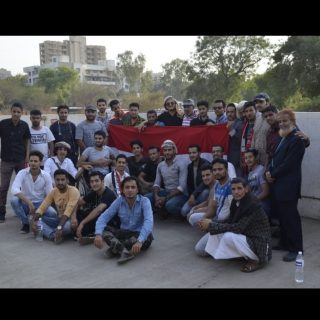The siege imposed on the oil derivatives ships throughout the past phases has never witnessed such a level of escalating criminality before. For more than 150 days, from late May to the present day, the countries of war coalition against Yemen, led by the United States, Saudi Arabia and the UAE, have been pirating oil derivatives ships. They hold the vessels under the UN cover, despite obtaining UN entry pass permits after being subjected to the procedures of the UN Verification and Inspection Mechanism (UNVIM). They deliberately endanger the lives of more than (26) million citizens, i.e. 85% of the total population of the Republic of Yemen, restricting their lives and threatening all sectors with the collapse of their operational capabilities and suspension.
The forces of war coalition against Yemen have been holding 15 oil ships carrying 409 thousand and 55 tons of gasoline and diesel materials, for varying periods of time amounting to more than five months.
Six oil derivatives vessels have been under detention for more than 5 months, while four other vessels have been held for a period of more than four months. The quantities of oil derivatives that have been distributed, based on priority, to public service institutions and petrol stations operating in the Capital City and other governorates are among the limited quantities that have been seized by the concerned anti-smuggling authorities. The Yemen Petroleum Company (YPC) examines and processes the seized quantities, and then sells them at the official price, and distributes them according to the Emergency Plan controls. The company also warns of an unprecedented humanitarian disaster due to the continued detention of oil derivative ships.
With the recurrence of the fuel crisis and the depletion of fuel from many petrol stations in Sana’a, and its availability temporarily with limited quantities in some of them, the black market was reactivated. As a result, the price of a 20-liter container of gasoline reached nearly 20,000 riyals (about 32.2 US dollars), compared to the official price of 5,900 riyals (9.51 US dollars).
The countries of war coalition against Yemen were not confined only to besiege Yemeni people and prevent the entry of oil ships, but also doubled the suffering of 26 million Yemenis by pushing petroleum materials lacking conformity with the specifications and standards to enter the country unofficially through land ports. The war coalition countries seek to intensify the suffering of the Yemeni people through their attempts to withdraw hard currency from the domestic market and cause deterioration in the economic situation.
The stifling fuel crisis resulting from preventing the entry of ships loaded with various oil derivatives and holding them for more than 150 days, and the deterioration of the economic situation due to arbitrary measures taken by the countries of the aggression coalition, including the withdrawal of foreign currency and rising its exchange rate to large sums, have burdened citizens and caused the following:
Depriving Yemenis of the benefit of the global oil price drop, caused by the COVID-19 pandemic.
Transport fares have doubled, and the prices of many food and consumer goods, water, electricity and other commodities have increased.
This led to the suspension of factories, commercial and industrial activities, and decline in the productivity of bakeries, on which the majority of residents in the northern governorates depend to provide their bread needs, as they are facing another crisis related to the difficulty of obtaining domestic gas.
In addition, the stock of fuel available at the Yemen Petroleum Company “has reached a very critical stage.” It is “not sufficient to supply vital sectors,” such as health, electricity, water, and the sanitation sector, during the “coming days.”
There are catastrophic losses in the agricultural sector, and this is considered a direct target and a threat to the food security of the Yemeni people, as it leads to great damages in the agricultural sector.
Preventing the entry of oil derivatives has directly affected the lives of citizens in terms of labor force shortage, the suspension of means of transportation and carriage, the decline in domestic agricultural production, and the cessation of agricultural products refrigerators. It is worth noting that more than 50% of the Yemeni population works in the agricultural field.
International reports confirm that there are indications warning of an unprecedented humanitarian disaster due to the continuation of the countries of war coalition against Yemen, led by the US, KSA and UAE, in detaining oil derivatives ships and preventing them from reaching Hodeidah port to unload their cargo.
The forces of the war coalition on Yemen, led by the US, KSA and UAE, as well as the United Nations shall bear responsibility and consequences of the persistent maritime piracy by detaining oil derivatives ships, and preventing them from reaching the port of Hodeidah to unload their cargo. They shall be also held accountable for the subsequent impact of this blockade on the humanitarian situation in Yemen and for ignoring the related warnings stated in local and international reports.






